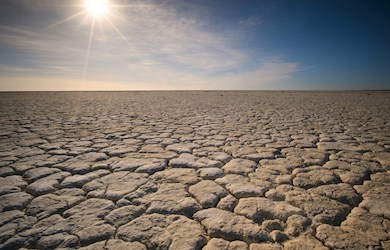The Paris 2024 Summer Olympics and Paralympics organisers pledge that the competition will set a higher standard for sustainability. The organisers are conscious of the vast extent of their sustainability targets, given the 800 Olympic sporting events, 15,000 athletes, 45,000 volunteers, and 13 million meals supplied [1]. They call these objectives humanity’s “greatest challenge.” This article examines how the Paris Games will prioritise sustainability and could serve as a model for other events of a similar nature in the future.
The most environmentally friendly Olympic Games ever?
With Paris 2024 promising to cut the event’s carbon footprint in half compared to the average of past Summer Games, the games are being referred to as the greenest in Olympic history. Hosting the “most sustainable” games will require a 1.75 million tonnes CO2 emission cap. To put this into perspective, the Paris 2024 Organising Committee claims that the Summer Olympics in Tokyo 2020, Rio 2016 and London 2012 released an average of 3.5 million tonnes of CO2 [2]. Emissions from the games in Tokyo are especially noteworthy since COVID-19 limitations prevented people from attending that event. In addition to mitigating and minimising emissions, the Paris 2024 sustainability plan will also include offsets, and allocating funds to global environmental and social initiatives.
Figure 1: Olympic rings on the Eiffel Tower 2024. [3]
Reuse and recycling at Paris 2024
In the past, major investments in new venues were usually associated with hosting the Olympics. However, 95% of Paris 2024 will take place in already-existing structures or makeshift infrastructure. Most of the activities will take place at the Stade de France, which was initially constructed for the 1998 FIFA World Cup. For the 2024 Olympic Games, only one new competition venue, the Aquatics Centre in Saint-Denis, is being constructed. [4]
Long after the Games, the Seine-Saint-Denis community will continue to benefit from the Aquatics Centre in the following ways:
- The Centre’s 4,680 square metre rooftop array of solar panels will supply the majority of the facility’s energy needs.
- Every seat in the Centre is constructed from locally repurposed plastic rubbish.
- Since wood makes up most of the structure, construction-related emissions are also decreased. [5]
The venues’ interior design is similarly subject to the reduce and reuse strategy. Tents, seats, computers, and sporting goods are among the items that Paris 2024 has discouraged and promoted sharing when feasible. For instance, the number of furniture pieces required for the Games has been lowered from the original estimate of 800,000 to 600,000 thanks to this strategy. When it comes to the sports themselves, out of two million pieces of sports equipment, three-quarters will be rented or provided by sports federations. [6]
Choosing eco-friendly transport
Two other environmentally friendly features of the Paris 2024 Olympic Games are 1,000 km of bike lanes and 200,000 more street trees, according to the publication The Guardian. [7] According to the Paris Tourist Office, most Olympic venues can be reached by public transport, and an extra 3,000 pay-as-you-go bikes are being made available. Toyota, a worldwide Olympic partner, will supply the electric, hybrid, and hydrogen-powered vehicles that will be used to transport athletes and accredited participants. With roughly 40% fewer vehicles than in prior Games, the fleet will be streamlined in an attempt to further minimise the effect. [8]
Plates of sustainability: more plant-based, more local, and less plastic
A greater amount of responsibility will be used in the delivery of 13 million meals during the Olympic and Paralympic Games. About two hundred athletes and about 120 organisations, including farmers, producers, caterers, and nutritionists, worked together to develop the Paris 2024 Food concept. The organisers promise, among other things, to provide meals that have half the carbon emissions of a typical French lunch. [2]
The amount of plant-based ingredients in food will be doubled for the Olympics, and there will be more plant-based options available for staff and spectators alike. Additionally, they will source 80% of their ingredients from regional agricultural production, with 25% coming from within 250 kilometres of the event site. This will reduce food waste by more accurately predicting quantities and redistributing, composting, or otherwise converting any food that isn’t consumed. In addition, they are reusing all of the infrastructure and catering equipment after the Games, cutting down on the amount of single-use plastic used in catering by half. [2]
Good luck to all!
Not only do the Olympic and Paralympic Games in Paris, 2024, promise to be an incredible spectacle, but they will also have long-term positive social and economic effects. The Games serve as a potent reminder of what is possible when we work together, from advancing gender equality and health to advancing sustainability and technological innovation.
Pager Power
Pager Power undertakes technical assessments for developers of renewable energy projects and tall buildings worldwide. For more information about what we do, please get in touch.
References
[1] Kovacevic, I. (July, 2024) The Paris 2024 Olympics and Paralympics: Advancing health, sustainability, equality, and growth, Allianz SE.
[2] Five ways Paris 2024 is delivering more sustainable games (2024) International Olympic Committee.
[3] Ibex73 (2024) Olympic rings on the Eiffel Tower 2024. Paris. Last accessed on 14th July 2024. Available at WikiCommons.
[4] Masterson, V. (2024) Paris aims to host the most sustainable Olympics ever – here’s how the city is preparing, World Economic Forum.
[5] Tran, K. (2024) 5 ways the Paris Olympics is driving sustainability, Tatler Asia.
[6] Downes, S. (2024) Paris 2024 olympics: Can major events be sustainable?, Sustainability Magazine.
[7] Chrisafis , A. (2024) ‘greenest ever games’: How the paris olympics hopes to inspire a new era of global sporting events, The Guardian.
[8] Tridimas, B. (2024) Going green: Can the Paris 2024 Olympics slash carbon emissions?, Context.




